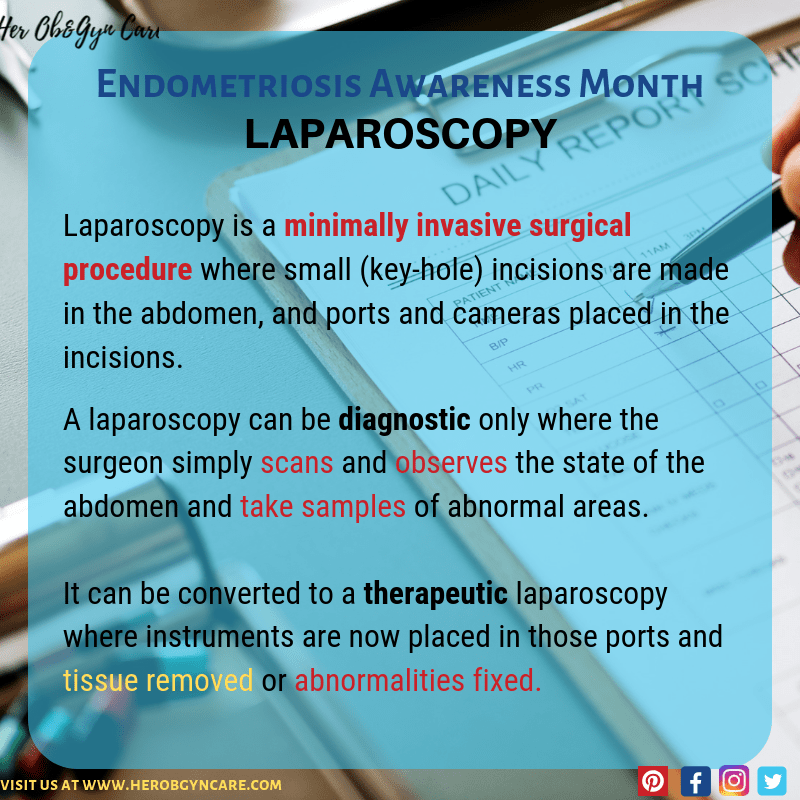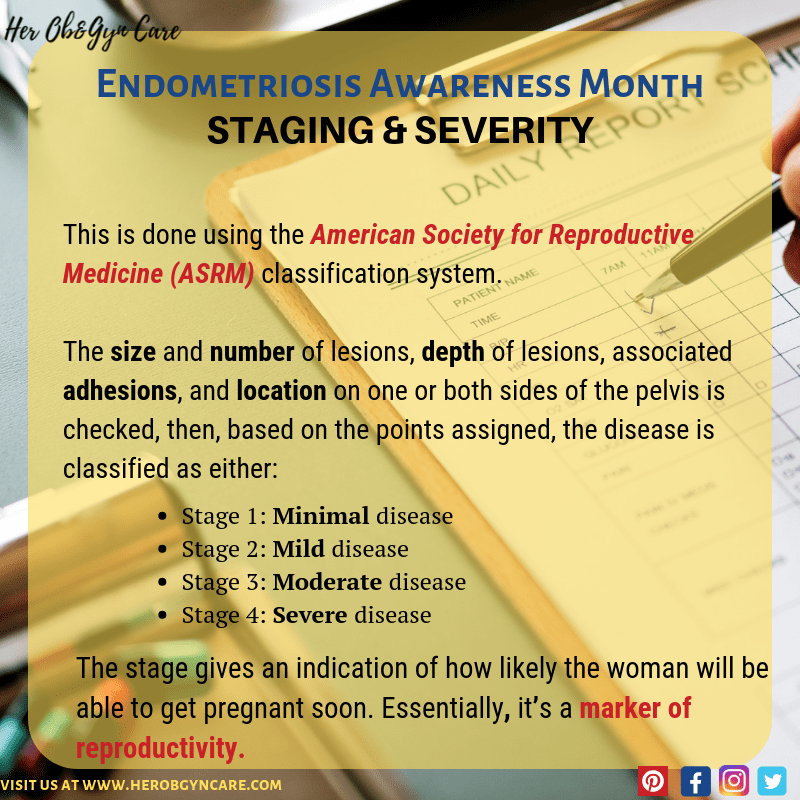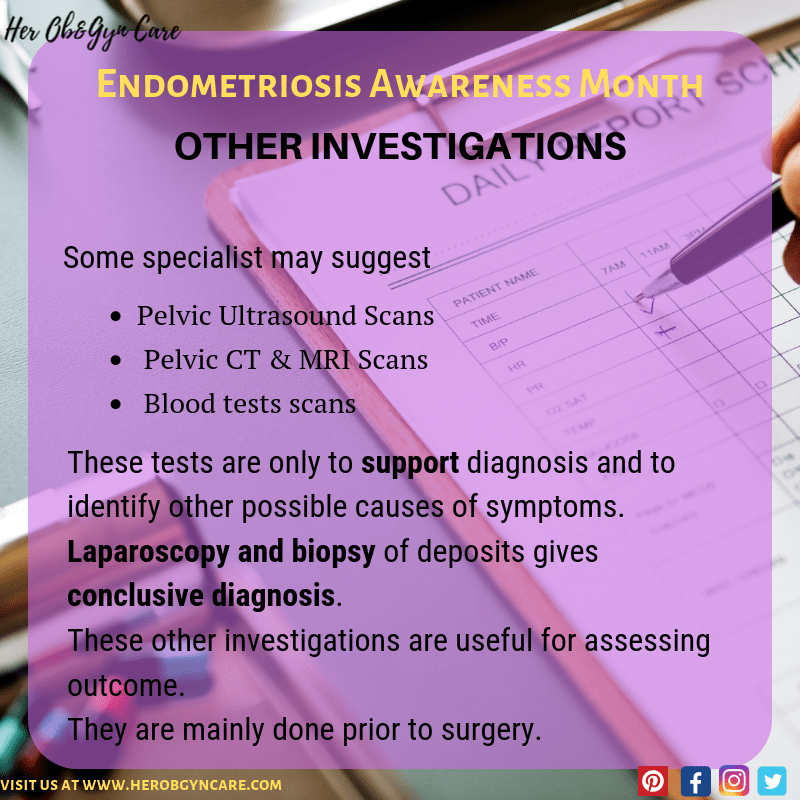Hey Lovies!
Today, we continue our short series looking at how to diagnose Endometriosis.
March is celebrated as Endometriosis Awareness M
We understand that this potentially debilitating disease is grossly underdiagnosed. Therefore, there is no better time to shed some light on it and to help spread the word to more women that help is available.
Endometriosis is a severely painful disease caused by functional endometriotic tissue being implanted in ectopic locations outside the uterus.
In our previous articles, What do you really know about Endometriosis and How to Know if You have Endometriosis, we explored the various locations these implants end up and how they affect the areas of the body. Today, we will look at how to diagnose it.
So, get ready for another knowledge-packed session. It’s time to LEARN!
Why is it important to diagnose Endometriosis?
The simple answer is because it has debilitating effects.
Chronic pelvic pain, subfertility/infertility and the different forms of bleeding associated with this disease is enough to warrant early diagnosis and treatment to avoid them.
Prevention is always better than cure, irrespective of the form of that prevention.
Drastic consequences call for drastic measures.
How is Endometriosis diagnosed?
The diagnostic tools are mainly laparoscopy and laparotomy.
Laparoscopy is the current gold-standard investigation for the diagnosis of Endometriosis. It will detect up to 97% cases and over 77% will be concrete cases.
So, if a woman is suspected of having endometriosis, a diagnostic +/- therapeutic laparoscopy would be scheduled by her Ob&Gyn specialist.
Visual inspection of the pelvis and abdomen is done. Biopsy samples of any tissue with the appearance of implants and resultant fibrosis will be taken and sent to the pathology lab for testing to support the diagnosis.
Staging
Other Diagnostic Tools
Other investigations may be used to aid in the diagnosis. However, their sensitivity is quite limited.
- Pelvic Ultrasound
- This is best imaging choice in cases of endometrioma (ovaries involved) where chocolate cysts are assessed. The transvaginal type of scan is the most useful.
- Pelvic CT & MRI
- When it comes to bowel involvement, the MRI is the most useful in determining rectal involvement. It can detect up to 90% cases involving the rectum.
- MRI is such a good option as there is no exposure to radiation and the high-resolution quality of the images is superb. They can do 3D reconstruction of images too.
- The CT scan is useful with involvement of other areas of the bowel, as well as the urinary system.
- Blood tests
- The use of blood tests in diagnosis is impractical in the day and age. However, some physicians may take off an initial sample for a serum marker called CA-125.
- Levels tend to be elevated in Endometriosis and will fall significantly after therapeutic laparoscopy (I’ll explain exactly what this is in a few seconds).
- A fall in the level is an indicator of success of the laparoscopic treatment.
- HOWEVER, the significance of the fall should not be used to say that the disease is absent. It is not! It is just at a lower load than it was before.
- There are some other tests being developed in research which have promising results and may be able to replace the need for diagnosis through surgery.
Wrapping Up
There we go lovies, these are the tests your healthcare provider should inform you of when they think you have endometriosis.
Now you have the right knowledge to make the right decisions.
If you have endometriosis, I hope you have a good healthcare provider that will be with you every step of the way and guide you through the process of this difficult disease.
You should know that it is not the end of the world and that there is always hope.
If you are working on getting pregnant, you should find a support group on-line where you can bond and learn more from women who may have similar circumstances like you. There are so many on Facebook. Just type in the phrase Endometriosis and you will find a whole host of them.
There is also a great worldwide support website, Endometriosis.org, where you can get more information.
Remember that I am here for you too. You can send me your questions and I will do my best to give you the correct information. You can email us directly at yourgynaetalk@gmail.com
You should follow us on social media where we share other info on Endometriosis and other important topics about sex and fertility.
Instagram: Wannabe_futureObgyn
Facebook: Her Ob&Gyn Care
Facebook Group : Lovies Tribe of Her Ob&Gyn Care
Pinterest: Her Ob&Gyn Care*
All the best, lovies!
Have a positive week!
XOXO
Creator, Her Ob&Gyn Care©
References
Willy Davila, G., MD, Kapoor, D., MD, MBBS, MRCOG, Alderman, E., MD, Hiraoka, M. K., MD, Ghoniem, G., MD, FACS, Peskin, B., MD, MBA, & Price, T. M., MD. (2018, July 27). Endometriosis (M. Rivlin MD, F. Casey MD, MPH, & F. Talavera PharmD, PhD, Eds.). Retrieved March 6, 2019, from https://emedicine.medscape.com/article/271899-overview.







